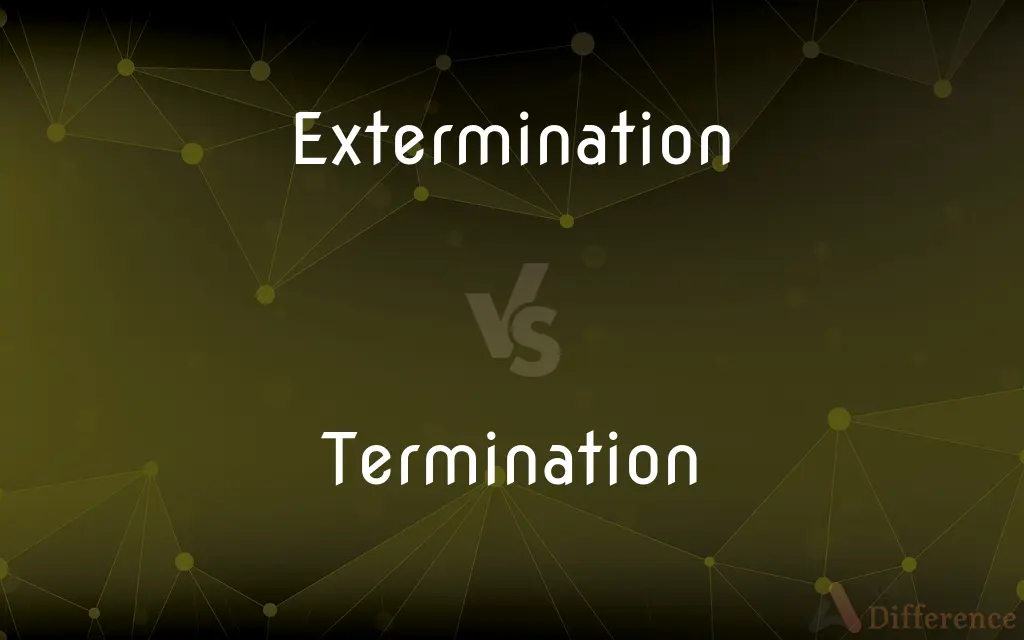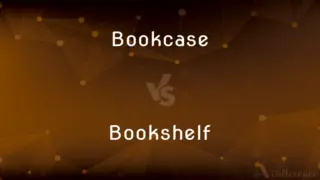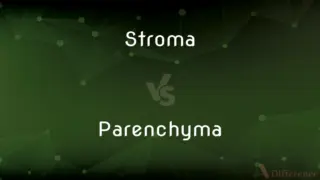Extermination vs. Termination — What's the Difference?
By Urooj Arif & Fiza Rafique — Updated on March 20, 2024
Extermination refers to the complete and often brutal eradication of something, typically pests or an undesirable population, while termination implies the act of ending or concluding something, often a contract or employment, in a less violent context.

Difference Between Extermination and Termination
Table of Contents
ADVERTISEMENT
Key Differences
Extermination is a term often associated with the complete and systematic eradication of a group, species, or population. This process is usually thorough and aims to eliminate the targeted entity entirely. Whereas termination is a broader term that can apply to various situations, such as ending employment, contracts, or projects, and does not inherently imply violence or the complete annihilation of an entity.
While extermination is frequently used in contexts involving pests or invasive species, suggesting a final and often lethal outcome, termination can be applied in both personal and professional contexts without necessarily implying harm. For example, terminating a contract or employment simply means bringing it to an end.
The intent behind extermination is typically to solve a perceived problem by completely removing the source, such as exterminating a rodent population to prevent disease. On the other hand, termination can be a mutual decision or a necessary conclusion to an agreement or relationship, not always driven by the desire to eliminate but rather to conclude.
The methods involved in extermination often require aggressive and sometimes harsh measures, designed to ensure that the target is completely eliminated. Termination, however, can involve a process or procedure that respects the terms of an agreement or the rights of the parties involved, and might include notice periods, severance pay, or other forms of compensation.
Despite these differences, both terms share a commonality in their finality. Extermination emphasizes a total end with no chance of resurgence, while termination implies an end to a particular state, condition, or agreement, possibly allowing for new beginnings or changes.
ADVERTISEMENT
Comparison Chart
Definition
Complete eradication, often with violence.
Ending or concluding, without inherent violence.
Context
Typically used for pests or invasive species.
Used in various contexts, including employment and contracts.
Intent
Solve a problem by removing the source.
End an agreement or relationship, not always to eliminate.
Methods
Aggressive and harsh measures.
Process-oriented, respecting terms and rights.
Finality
Total end with no resurgence.
Allows for new beginnings or changes.
Compare with Definitions
Extermination
Implies a permanent solution with no chance for the target's resurgence.
The extermination strategy was designed to ensure the pests could not return.
Termination
The act of ending or concluding something, such as a job, contract, or project.
His termination from the job was effective immediately.
Extermination
Often used in reference to pest control or the removal of undesirable elements.
Extermination services were called to deal with the rat infestation.
Termination
Involves processes and procedures that respect terms and rights.
Termination of employment here includes a severance package and counseling services.
Extermination
Involves aggressive measures to ensure complete elimination.
The extermination of the invasive plant species required the use of strong herbicides.
Termination
Can apply to a wide range of situations, not inherently violent or total.
The termination of the contract was mutually agreed upon by both parties.
Extermination
The complete eradication of a group, species, or population, often using lethal means.
The extermination of invasive pests is necessary to protect the native species.
Termination
To bring an agreement or condition to a close, not always with the aim to eliminate.
The project faced termination due to a lack of funding.
Extermination
Aimed at solving a problem by totally removing its source.
The government's extermination program targeted the disease-carrying mosquitoes.
Termination
Ends a specific state or condition but allows for new opportunities.
The termination of her contract allowed her to pursue a career she was truly passionate about.
Extermination
Killing, especially of a whole group of people or animals
The near extermination of the buffalo herds
Termination
The action of terminating something or the fact of being terminated
The termination of a contract
Extermination
To get rid of by destroying completely
Exterminated the termites that were weakening the wall.
Termination
A word's final syllable or letters or letter, especially when constituting an element in inflection or derivation.
Extermination
The act of exterminating; total destruction or eradication
Extermination of error or vice
Extermination of weeds from a field
Depending on the case, extermination of a group of people may constitute genocide or crime against humanity.
Termination
An ending or result of a specified kind
A good result and a happy termination
Extermination
Elimination.
Termination
The act of terminating or the condition of being terminated.
Extermination
The act of exterminating; total destruction; eradication; excision; as, the extermination of inhabitants or tribes, of error or vice, or of weeds from a field.
Termination
The end of something in time; the conclusion.
Extermination
Elimination.
Termination
An end of something in space; a limit or edge.
Extermination
Complete annihilation;
They think a meteor cause the extinction of the dinosaurs
Termination
A result; an outcome.
Extermination
The act of exterminating
Termination
(Linguistics) The end of a word, as a suffix, inflectional ending, or final morpheme.
Termination
The process of terminating or the state of being terminated.
Termination
The process of firing an employee; ending one's employment at a business for any reason.
Termination
An end in time; a conclusion.
Termination
An end in space; an edge or limit.
Termination
An outcome or result.
Termination
(grammar) The last part of a word; an ending, a desinence; a suffix.
Termination
(medical) An induced abortion.
Termination
A word, a term.
Termination
The ending up of a polypeptid chain.
Termination
The act of terminating, or of limiting or setting bounds; the act of ending or concluding; as, a voluntary termination of hostilities.
Termination
That which ends or bounds; limit in space or extent; bound; end; as, the termination of a line.
Termination
End in time or existence; as, the termination of the year, or of life; the termination of happiness.
Termination
End; conclusion; result.
Termination
Last purpose of design.
Termination
A word; a term.
Termination
The ending of a word; a final syllable or letter; the part added to a stem in inflection.
Termination
A coming to an end of a contract period;
The expiry of his driver's license
Termination
A place where something ends or is complete
Termination
Something that results;
He listened for the results on the radio
Termination
The end of a word (a suffix or inflectional ending or final morpheme);
I don't like words that have -ism as an ending
Termination
The act of ending something;
The termination of the agreement
Common Curiosities
Can a contract be exterminated?
The term "exterminated" is not typically used for contracts; "terminated" is the correct term.
Can termination ever involve extermination?
In metaphorical or extreme contexts, termination might be used to imply extermination, but generally, it does not involve violence or complete eradication.
Can extermination be considered a form of termination?
While extermination can be viewed as a specific, extreme form of termination, it typically involves more final and drastic measures.
Is extermination always negative?
While often viewed negatively, extermination can be necessary for environmental management or public health.
What are some legal implications of termination?
Legal implications of termination can include severance, notice periods, and potential litigation for wrongful termination.
Are there ethical concerns with extermination?
Extermination, especially of animals or pests, raises ethical considerations regarding humane treatment and environmental impact.
Can termination lead to positive outcomes?
Yes, it can offer opportunities for new beginnings, growth, and redirection in personal and professional contexts.
What is the key difference between extermination and termination?
Extermination involves complete eradication, often violently, while termination is about ending something, often through a process.
How is termination viewed in employment law?
Employment law closely regulates termination to protect workers' rights and ensure fair treatment.
Does termination always imply fault or failure?
No, termination can be mutual or due to external factors unrelated to fault or failure, such as economic conditions.
How can businesses ensure fair termination practices?
By adhering to legal standards, providing clear communication, and offering support like severance or outplacement services.
What role does extermination play in agriculture?
It's crucial for managing pests and diseases to protect crops and livestock, though it must be balanced with environmental care.
What are common reasons for the termination of a contract?
Common reasons include breach of terms, mutual agreement to end the contract, or external circumstances preventing fulfillment.
What alternatives exist to extermination for pest control?
Alternatives include humane trapping and relocation, biological control methods, and environmental management strategies.
How do societies justify extermination efforts?
Justifications often relate to public health, safety, and economic impacts, balancing ethical considerations with societal needs.
Share Your Discovery

Previous Comparison
Bookcase vs. Bookshelf
Next Comparison
Stroma vs. ParenchymaAuthor Spotlight
Written by
Urooj ArifUrooj is a skilled content writer at Ask Difference, known for her exceptional ability to simplify complex topics into engaging and informative content. With a passion for research and a flair for clear, concise writing, she consistently delivers articles that resonate with our diverse audience.
Co-written by
Fiza RafiqueFiza Rafique is a skilled content writer at AskDifference.com, where she meticulously refines and enhances written pieces. Drawing from her vast editorial expertise, Fiza ensures clarity, accuracy, and precision in every article. Passionate about language, she continually seeks to elevate the quality of content for readers worldwide.















































